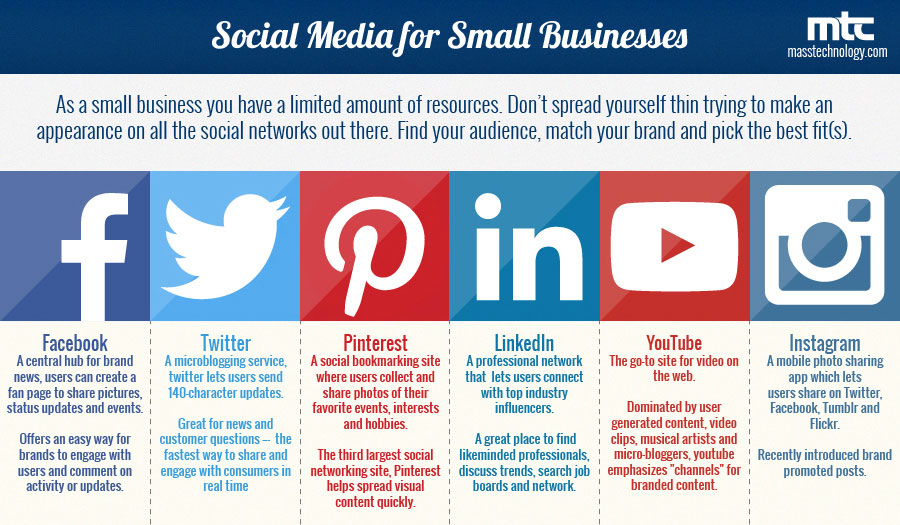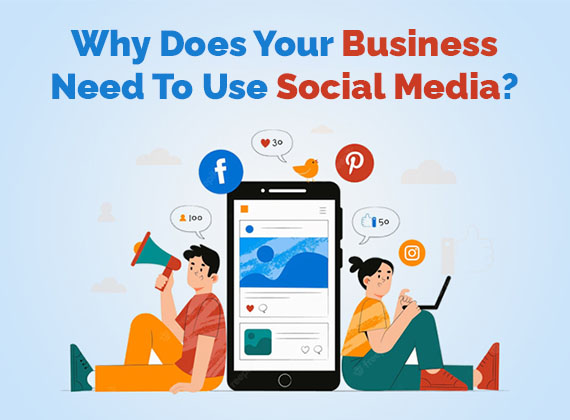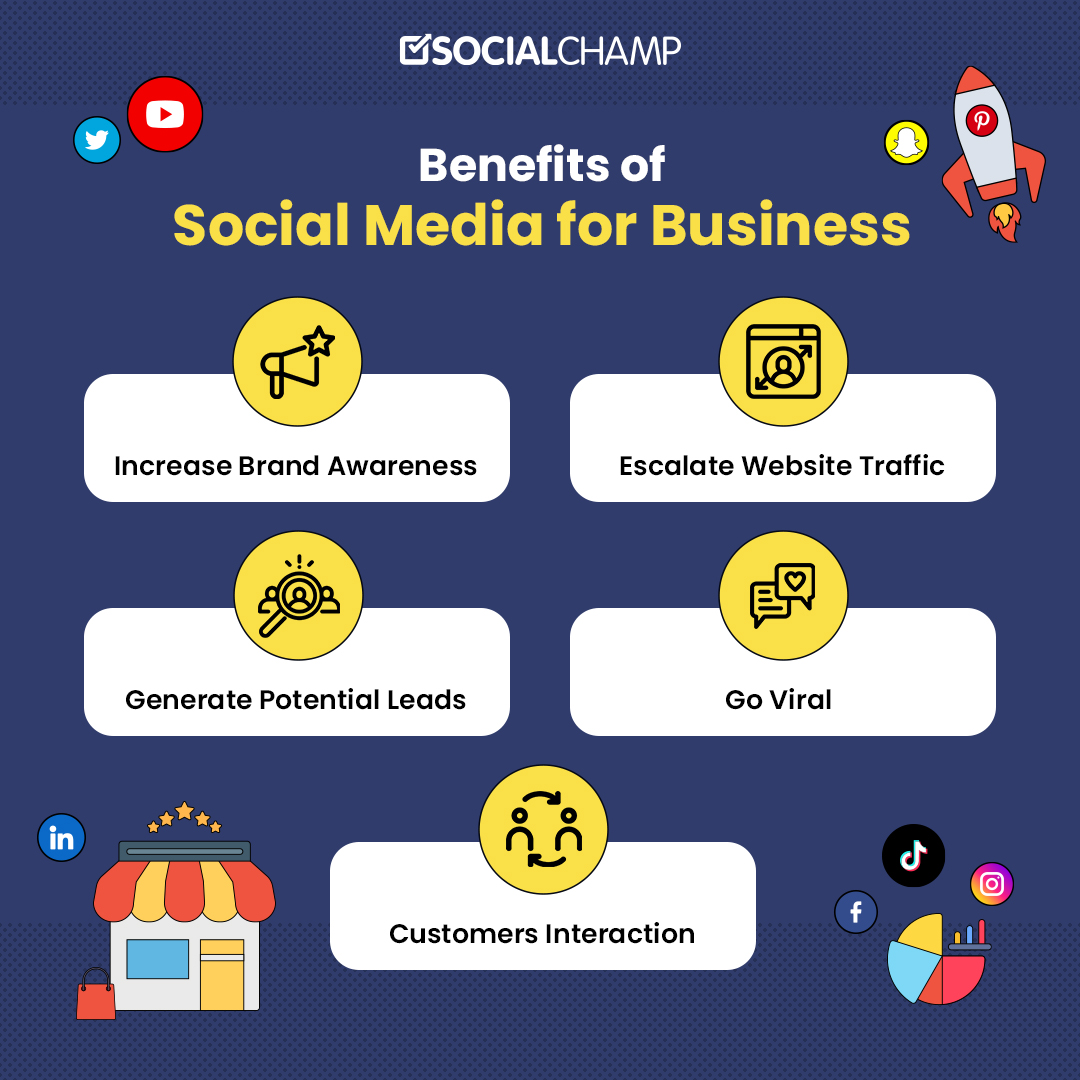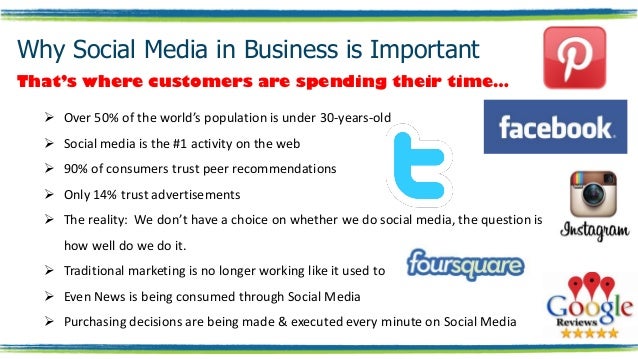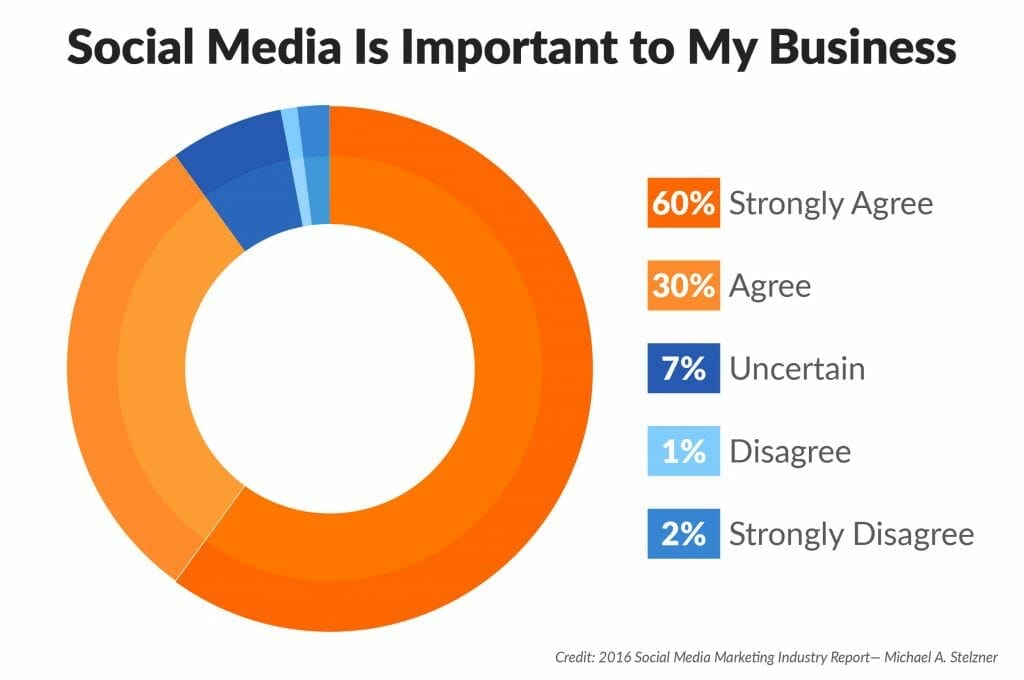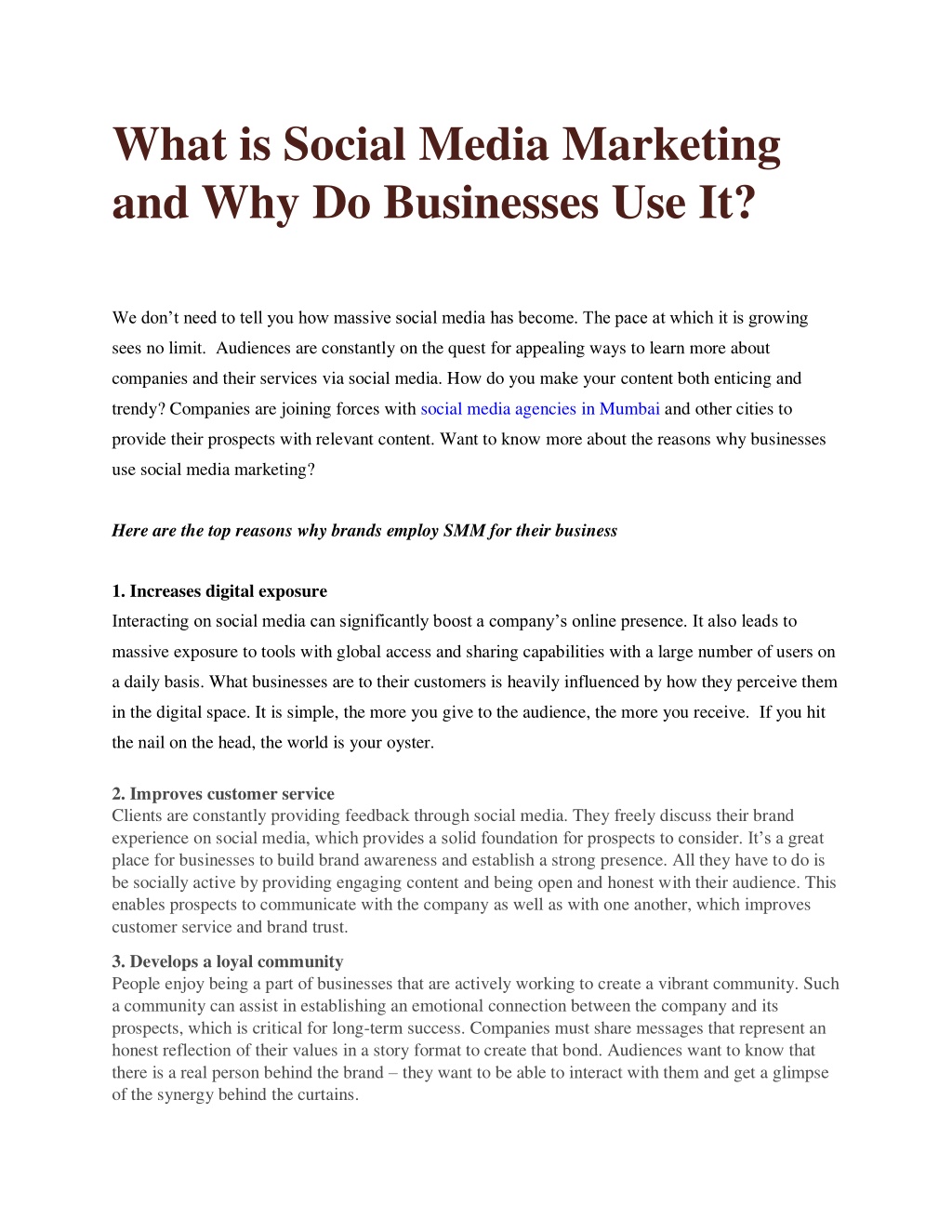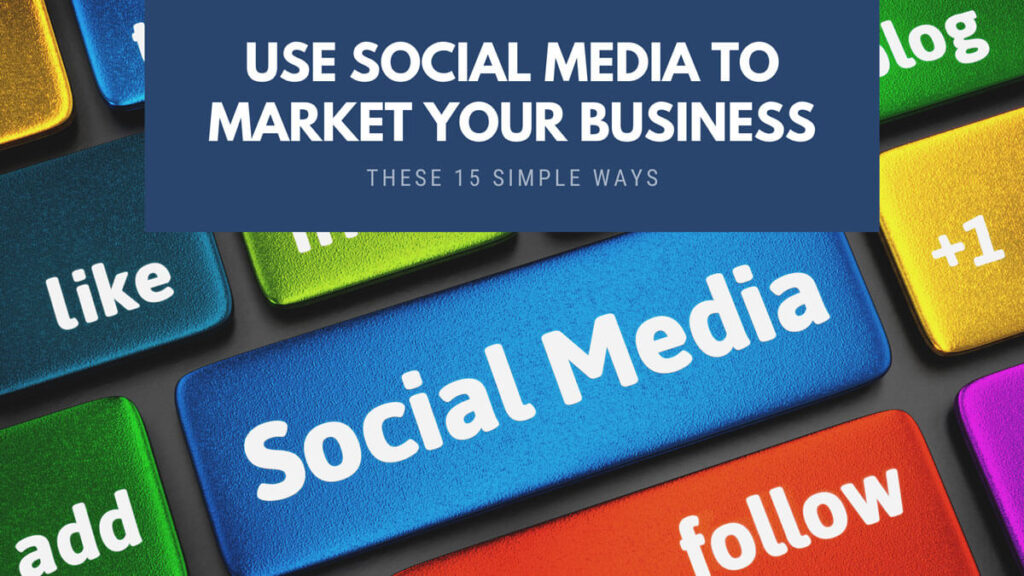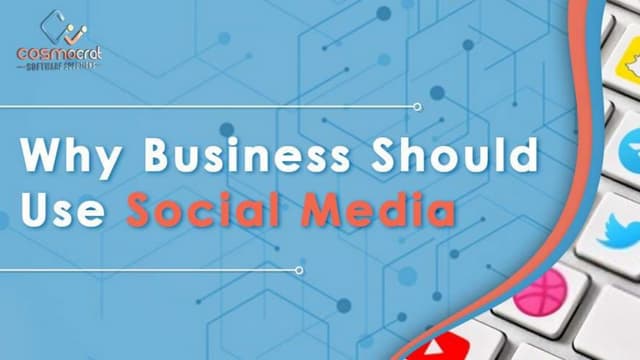Why Do Businesses Use Social Media
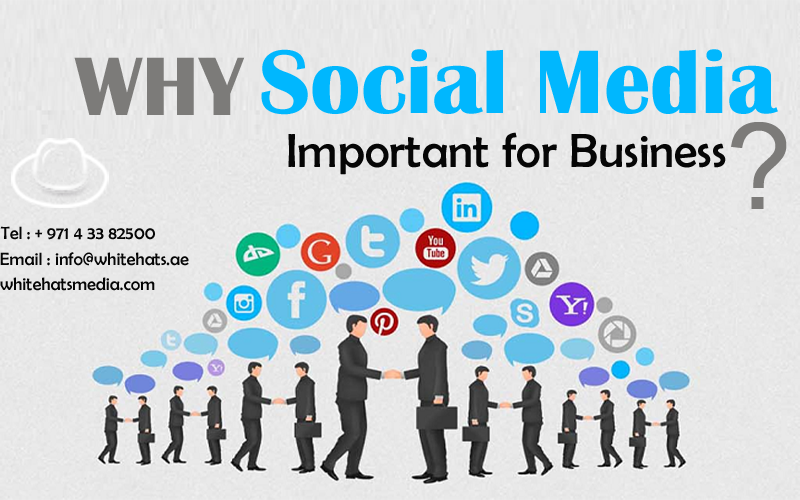
In today's digital age, social media has become an undeniable force, permeating nearly every facet of modern life. Businesses, regardless of size or industry, are increasingly leveraging these platforms, transforming how they connect with customers, build brand awareness, and drive sales.
But why exactly do businesses invest time and resources into platforms like Facebook, Instagram, X (formerly Twitter), LinkedIn, and TikTok? This article delves into the key reasons behind this widespread adoption, exploring the multifaceted benefits social media offers to the contemporary business landscape.
Reaching a Wider Audience
The primary driver for businesses embracing social media is the unparalleled reach it provides. With billions of users active daily across various platforms, companies can tap into vast potential customer bases that were previously inaccessible through traditional marketing methods.
According to a report by Statista, as of January 2024, the number of social media users worldwide stood at 4.95 billion, representing a significant portion of the global population.
This massive audience allows businesses to target specific demographics, interests, and behaviors, ensuring that their marketing efforts are directed towards the most receptive individuals.
Boosting Brand Awareness and Recognition
Beyond sheer reach, social media is instrumental in enhancing brand awareness and recognition. Consistent, engaging content helps businesses establish a distinct identity and cultivate a positive perception among consumers.
By sharing valuable information, entertaining content, and participating in relevant conversations, companies can build trust and loyalty with their target audience.
Hootsuite, a social media management platform, emphasizes the importance of consistent branding across all social media channels to create a unified and memorable brand experience.
Driving Website Traffic and Lead Generation
Social media serves as a powerful engine for driving traffic to a company's website and generating valuable leads. By strategically incorporating links and calls to action within their posts, businesses can encourage users to explore their products or services.
Furthermore, social media advertising allows for highly targeted campaigns designed to capture qualified leads based on specific criteria.
For example, a LinkedIn campaign can be used to target professionals in a specific industry, while a Facebook ad can reach users with particular interests or hobbies.
Improving Customer Engagement and Support
Social media provides an invaluable platform for direct interaction with customers. Businesses can use these channels to respond to inquiries, address concerns, and gather feedback, fostering a sense of community and loyalty.
Platforms like X and Facebook have become commonplace for customer service interactions, allowing businesses to provide real-time support and resolve issues promptly.
Moreover, social listening tools enable companies to monitor conversations and identify potential problems or opportunities, ensuring they stay ahead of the curve and address customer needs proactively.
Cost-Effective Marketing
Compared to traditional advertising channels like television, radio, and print, social media marketing offers a remarkably cost-effective solution for businesses of all sizes. Organic reach, while increasingly challenging to achieve, can still provide significant exposure without incurring substantial costs.
Even paid social media advertising can be tailored to specific budgets and target audiences, maximizing return on investment.
Smaller businesses, in particular, can benefit from the affordability of social media marketing, allowing them to compete with larger companies on a more level playing field.
Gathering Market Intelligence
Social media platforms offer a treasure trove of data that businesses can leverage to gain valuable market intelligence. By analyzing trends, monitoring competitor activity, and tracking customer sentiment, companies can make informed decisions about product development, marketing strategies, and overall business direction.
HubSpot, a leading marketing and sales software company, highlights the importance of social media analytics in understanding customer behavior and identifying opportunities for growth.
This data-driven approach allows businesses to adapt quickly to changing market conditions and maintain a competitive edge.
Conclusion
In conclusion, the widespread adoption of social media by businesses stems from a multitude of compelling advantages. From expanding reach and boosting brand awareness to driving traffic, improving customer engagement, and gathering market intelligence, social media has become an indispensable tool for modern businesses looking to thrive in the digital age. As social media continues to evolve, businesses that embrace its potential will be best positioned to connect with their target audience, build lasting relationships, and achieve sustainable success.


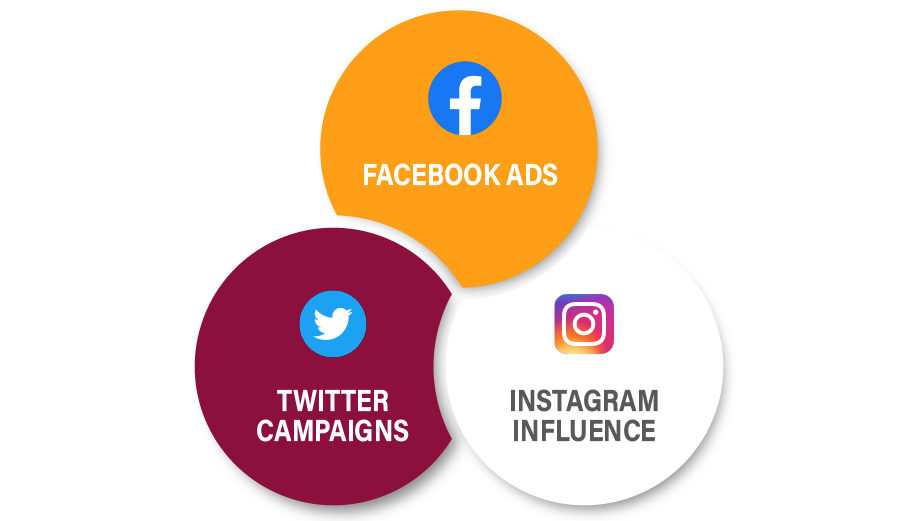

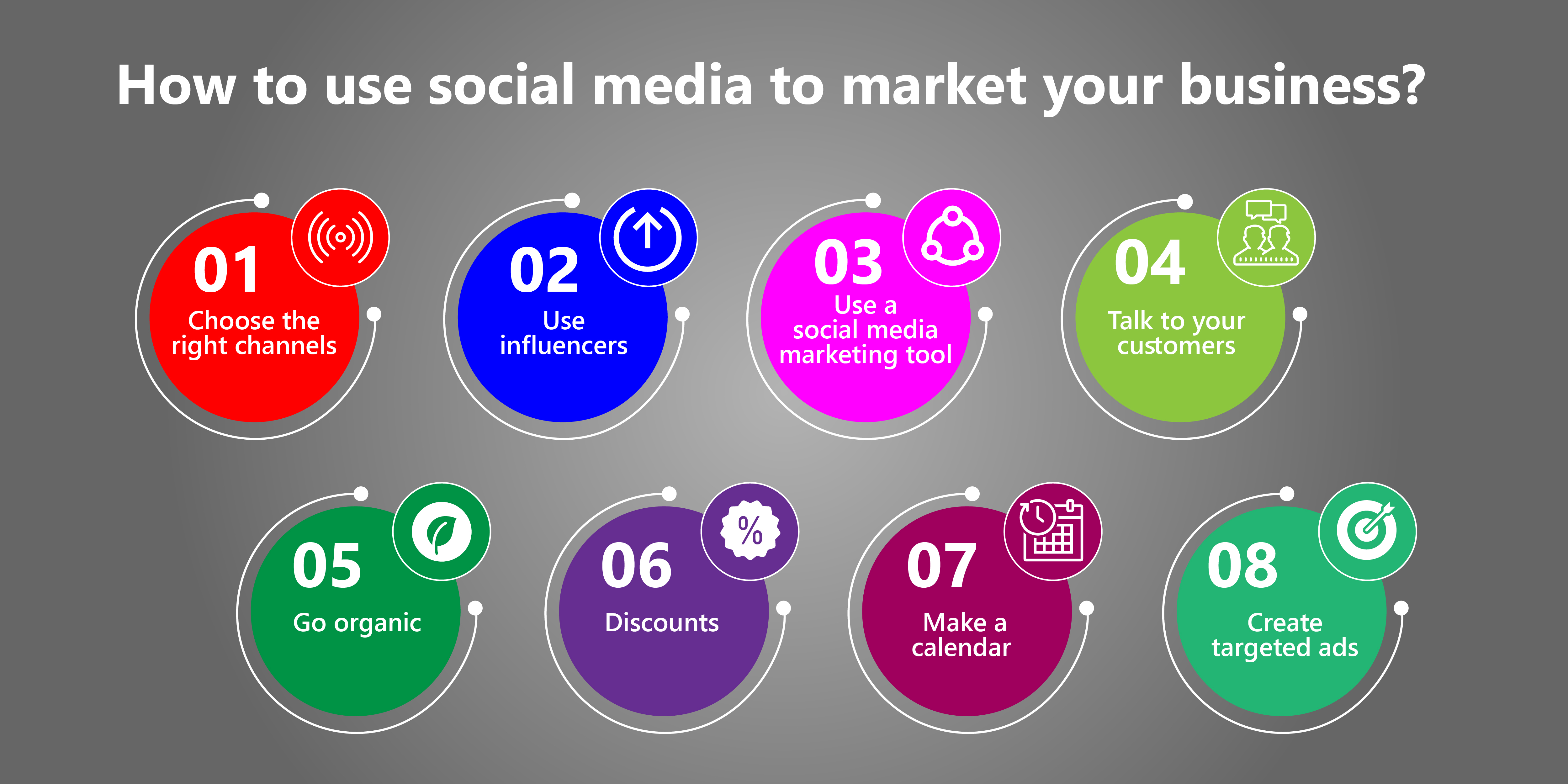

![Why Do Businesses Use Social Media Why the Most Successful Businesses Use Social Media [Statistics]](https://www.yokellocal.com/hubfs/072516-why-should-businesses-use-social-media.jpg)


